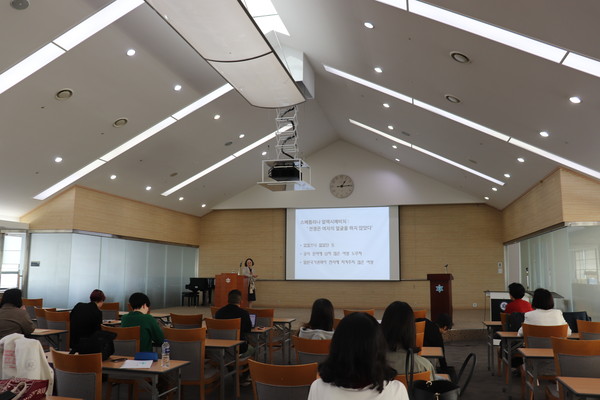
At 1 p.m. on October 10, Sookmyung Women’s University’s Research Institute of Asian Women hosted a special lecture on the theme “Asia-Pacific War and Women’s Labor”. The two-hour lecture was held in the lounge area of Centennial Hall. Instructor Jung Hyekyung, who earned a doctorate for her study of the forced mobilization of Japanese troops, talked about Japanese imperialism and colonial rule and the conscription of laborers, especially in relation to women. She then went on to talk about Japan’s colonization of the Korean Peninsula and Manchuria, the start of a Sino-Japanese War, the start of the Pacific War, and the road Japan took to become an imperialist and aggressor nation. She presented unknown information of Japan; for instance, the nation suffered from a shortage of labor because of its many wars, and as such Japan forced the people of its colonies to work. Compulsory labor mobilization has the process of survey registration, request, mobilization and transport. Japan has used a public power to mobilize Koreans and Asians. She continued with her talk by mentioning that most of the labor sites where colonials worked were located on the Korean Peninsula, and the labor environment at those sites was exceedingly poor. Many colonials, because they were forced into labor, suffered from persistent labor, breach of contracts, abuse at work, and were unpaid. Women were among the colonials forced and mobilized into. Women were sen to coal mines, munitions factories, and collective farms. In addition to these types of hard labor, women became sexual slaves for the Japanese military. Kim Min-joo, Department of History & Culture said, “It was interesting to hear not only history as it pertains to males, but also how women suffered at that time through this lecture. Although many know that women were forced to work as sexual slavery at that time, the location of these ‘brothels’ has yet to be found. More research is needed by historians to locate actual places, in which the crimes took place,” she said. Kim and other participants, through Dr. Jung's lecture, rediscovered some of the harsh hidden history of women in Korea.


